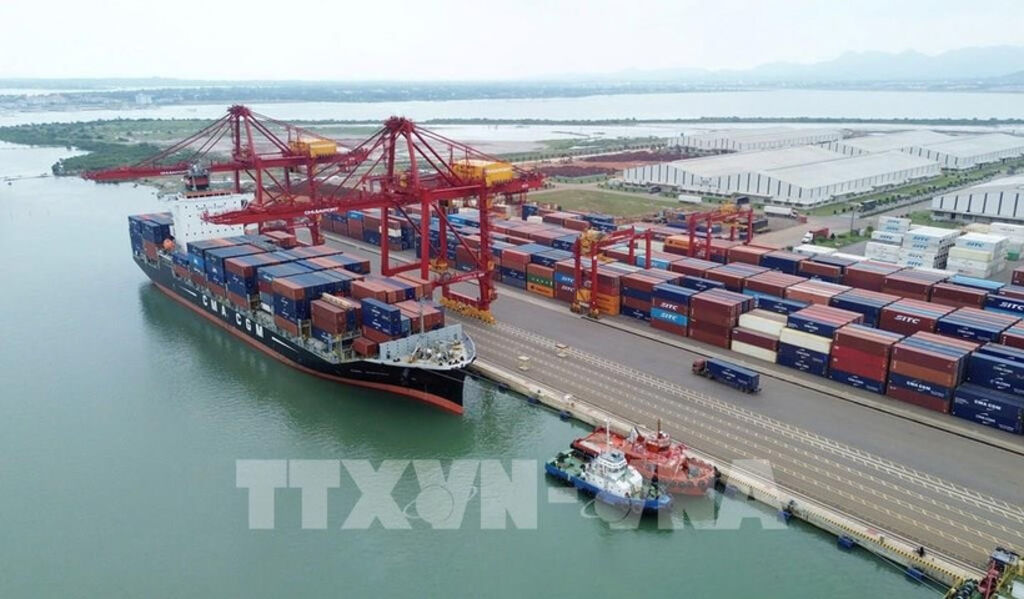 |
| Container loading at Chu Lai port__Photo: VNA |
As global supply chains face ongoing disruption, building a modern, transparent, and sustainable supply chain is key for Vietnam not only to maintain resilience but also to strengthening its global trade standing, requiring joint efforts from the Government, businesses, and international partners in capital, technology, and strategic vision, according to insiders.
Nguyen Thanh Nam, Vice Director of the Domestic Market Development Agency under the Ministry of Industry and Trade (MoIT), noted that Vietnam has become a hub for multinationals in electronics, textiles, and manufacturing, supported by growing logistics infrastructure. Yet, supply chains still face limitations, and strategic partnerships are essential to improvement.
In order to build a modern and sustainable supply chain, Nam pointed to the need for integrated logistics linking roads, ports, rail, air, and industrial zones, along with digital platforms using blockchain, AI, and IoT to enhance transparency and efficiency, and stronger linkages between domestic firms and multinationals to form supply clusters.
Olivier Langlet, CEO of Central Retail Vietnam, said that the firm hopes to contribute to building such supply chain in Vietnam by centralizing production, digitizing processes, and investing in greener logistics, in line with the country's national goals.
However, experts held that Vietnamese firms remain largely excluded from global value chains. FDI accounts for 73 percent of exports, while only 2.5 percent to 21 percent of local businesses are engaged globally.
They pointed to three main causes -low localization rates, limited readiness of local firms, weak linkages between FDI and domestic enterprises, and the fact that many FDI companies operate closed-loop supply chains, limiting local participation.
To build sustainable value chains, a fourth pillar — institution — must complement the traditional economic, social, and environmental pillars. Without transparent, supportive policies, sustainability is difficult to achieve. The Government must improve regulations, industry associations must act as connectors, and businesses must raise their capabilities, they suggested.
Bui Quang Hung, Vice Director of the Trade Promotion Agency, highlighted that a stable, connected, and transparent supply chain is vital for sustainable growth and competitiveness.
Supporting industries remain a weak link. Pham Hai Phong, Chief of Office at Vietnam Association for Supporting Industries (VASI), stressed that integration into global supply chains is a long-term process, and local firms must build internal capacity.
VASI members have made progress by streamlining production, cutting costs, and adopting technology. However, building autonomous domestic supply chains is equally critical. Success stories in sectors like automotive and electronics show that owning a final product opens doors to deeper global integration, he said.
Participation in trade fairs and promotions is vital for outreach, said Phong, adding that VASI has facilitated this, connecting members with partners from Japan, the US, and Europe, and offering training in global standards and technologies. It has also supported process improvements and fosters domestic collaboration to enhance competitiveness.
Experts agreed that supply chain development must be collaborative with the engagement of the State, local firms, and global partners.
The real question is not how many ports, warehouses, or exporters Vietnam has, but how many strategic partners are engaged, how robust the institutional support is, and how prepared domestic firms are to join global value chains. This will define Vietnam’s global trade position in the years ahead, they emphasized.- (VNA/VLLF)









